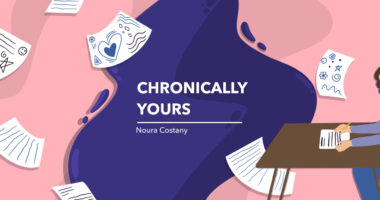No Two Journeys Are the Same with Cushing’s Disease

Hey, everyone! I hope everyone reading this had a great week!
This week on my Crush Cushing’s Instagram, I received a few messages from people asking me about my symptoms and theirs in order to compare them.
On one hand, this type of questioning is OK because people don’t want to feel alone any longer than they have to, or that they are “crazy.” But it becomes a little more problematic when someone wants to compare their story and symptoms directly with mine or with someone else’s. This is completely understandable, as they want to be able to go to their doctor or loved ones and say, “So-and-so online had this, this, and this, and to treat it they did this, that, and that, and this is how we should go about getting me a diagnosis and treatment.”
Wouldn’t it be absolutely amazing if Cushing’s were that simple? Where we all presented the same symptoms, had one cause and one form of treatment, and then had no sign in our bodies afterward that we’d ever had the disease and no risk of it ever coming back? It would be amazing. But unfortunately, that is not our truth.
Cushing’s disease has many layers. Is it florid? Is it cyclical? Is it caused by a pituitary tumor or an adrenal tumor? Maybe it’s caused by both. If it’s pituitary, what size is it? Is it a microadenoma or a macroadenoma? (You can read all about pituitary tumors and their sizes here.)
If it’s adrenal, is a tumor removal enough or does the adrenal gland need to be partially or fully removed? For both types of tumors, can the doctor safely remove it without causing damage to whatever is around it? What is your age? Do you have prior health issues? What health conditions run in your family?
Each individual needs to answer and review many questions. Although we have similar symptoms, not everyone has the same case. We are all individual cases. What happens to you may not happen to someone else. How it happens to you may not be how it happens to someone else. Heck, some Cushing’s cases are caused by taking large doses of steroids, and the disease is halted when people stop taking the steroids.
While it is OK to talk to others who have the disease, it is equally important to remember that the conversation should aim to find solace and not be just to compare stories. We all have different journeys with this disease. What will help others may not help you, and vice versa. Do not let someone else’s story upset you and make you think that you will never get help. You will get help eventually, you just need to keep fighting and make you and your symptoms a priority during doctor’s appointments.
Don’t go to your appointments telling your doctor about another patient. It’s OK to do once in a while if you’re curious about something you’ve heard and bring it up to discuss it, but don’t always question your doctor’s knowledge. If they show you that they’re helping, perfect! If they brush you off, start questioning them a little more. If your doctor doesn’t seem interested, find another who is, but be careful with that part — if your tests come back negative for something, that’s not the doctor’s fault!
However, do question your doctor if your tests are negative and he continues to discuss diet and exercise instead of looking to rule out other causes. The body’s lab results don’t always match the symptoms, as the body sometimes takes time to catch up!
Remember, don’t let someone else’s story discourage you. You are your own, unique individual and so, too, will be your disease!
Until next week!
XOXO, Catarina
***
Note: Cushing’s Disease News is strictly a news and information website about the disease. It does not provide medical advice, diagnosis, or treatment. This content is not intended to be a substitute for professional medical advice, diagnosis, or treatment. Always seek the advice of your physician or other qualified health provider with any questions you may have regarding a medical condition. Never disregard professional medical advice or delay in seeking it because of something you have read on this website. The opinions expressed in this column are not those of Cushing’s Disease News or its parent company, Bionews Services, and are intended to spark discussion about issues pertaining to Cushing’s disease.






Leave a comment
Fill in the required fields to post. Your email address will not be published.